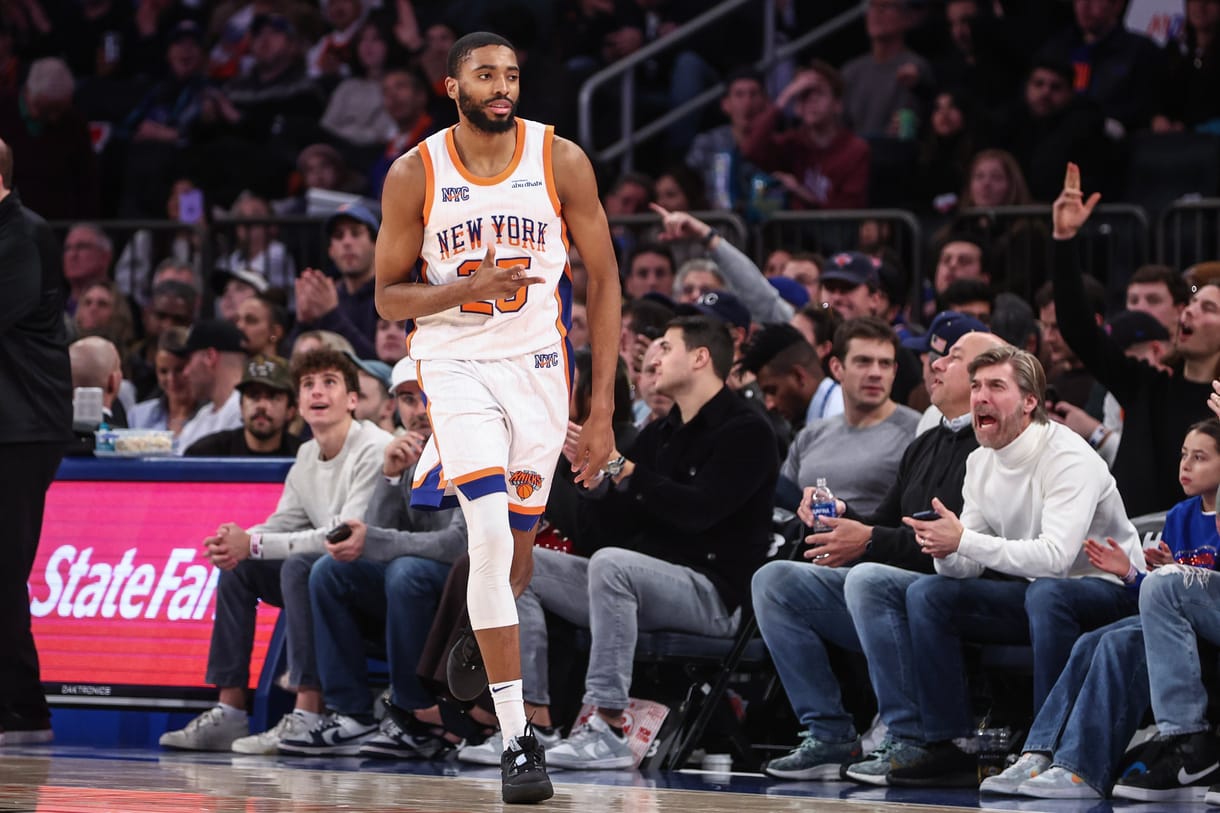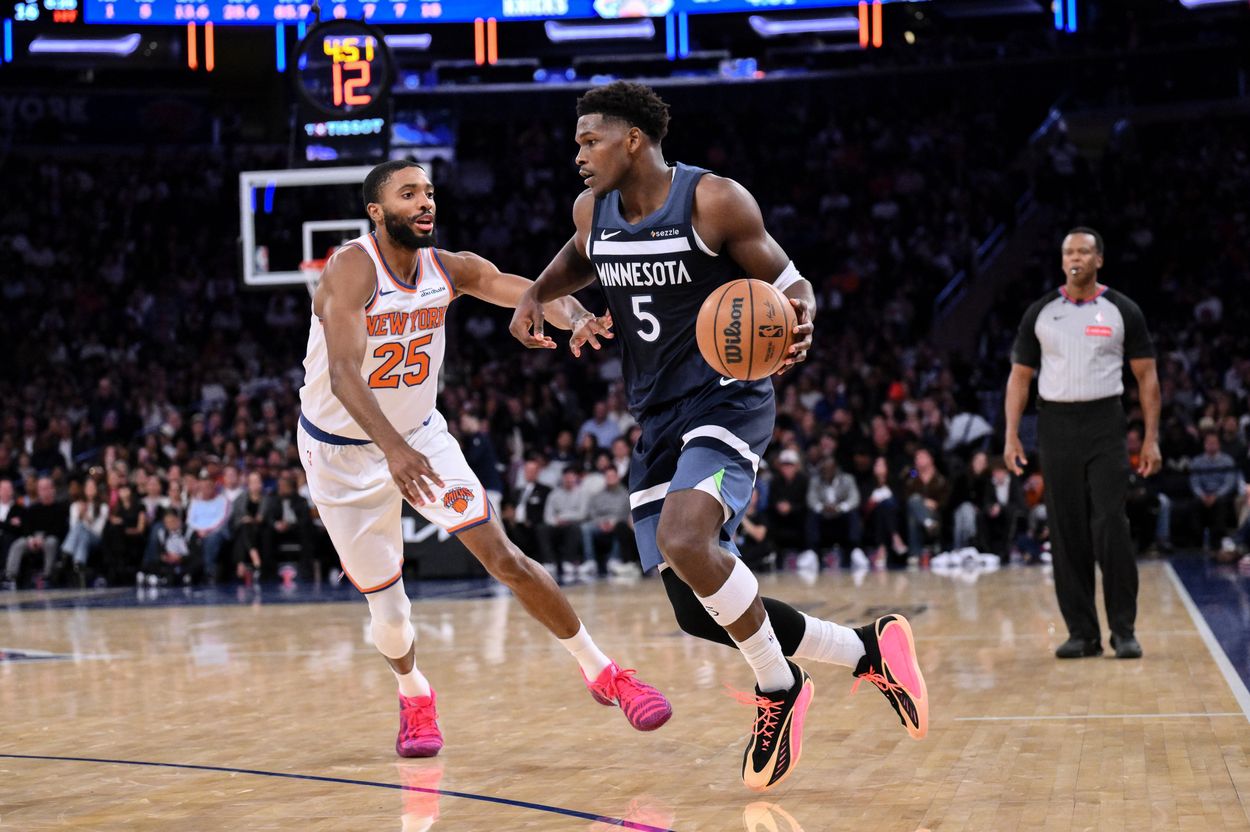
When the New York Knicks handed Mikal Bridges a four-year, $150 million extension this offseason, it barely raised an eyebrow. For a player who rarely misses a game, defends like his paycheck depends on it, and embodies the exact kind of culture New York wants to build, it felt like a fair deal.
But just a few months later, that number looks like highway robbery.
Bridges’ value goes beyond the box score
Bridges’ first full year in New York wasn’t smooth. Tom Thibodeau’s isolation-heavy offense slowed him down, taking him away from what he does best — playing with pace, cutting, and attacking off movement. He averaged 17.6 points, his lowest mark since 2021–22, while chipping in 3.7 assists and 3.2 rebounds on .500 shooting from the field and .354 from three.

Even so, he showed his trademark durability, logging a career-high 37 minutes per game and appearing in all 82 contests for the fourth straight season. In an era when stars routinely rest for “load management,” Bridges is the rare ironman who simply refuses to sit.
That availability alone adds value most teams can’t quantify.
A bargain in hindsight
Bridges’ extension includes a $6 million trade kicker and prevents the Knicks from moving him until February — not that they plan to. Mike Brown and the front office view Bridges as a foundational piece, and at $150 million over four years, he’s locked in below market value.
To put it in perspective, the Denver Nuggets just extended Christian Braun for five years and $125 million. Braun is a good young player who averaged 15.4 points last season, but he’s not the two-way weapon or floor-tilting defender that Bridges is. The difference in skill level far outweighs the $25 million gap in salary.
For New York, this contract is proof that smart timing and player fit can beat the market.
The quiet leader of a new era
Bridges might not be the Knicks’ highest-paid player, but he’s quickly become their tone-setter — the heartbeat of a roster built on toughness, energy, and unselfishness. His deal reflects more than just numbers on a spreadsheet; it represents trust and long-term vision.
New York spent years overpaying for production. Now, they’ve got a star locked in at below-market value who plays every night and leads by example.
In today’s NBA economy, that’s not just a win — it’s a rarity.
